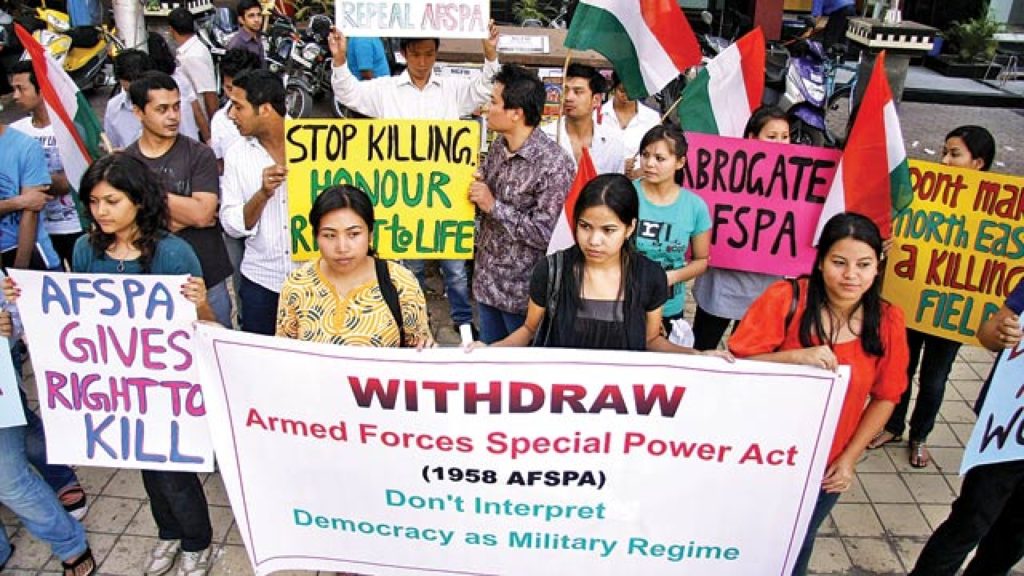AFSPA Removal Comes Not A Day Too Soon
Apr 1, 2022 | Shalini Rai
Civil society groups, rights activists and political leaders have been demanding the withdrawal of AFSPA for years, alleging excesses by security forces with impunity under the cover of the Act
The recent decision by the government to remove the Armed Forces Special Powers Act (AFSPA) from certain areas of Nagaland, Assam and Manipur could not have come a day earlier. However, it doesn’t mean that AFSPA has been completely withdrawn from the North-East. It comes after months of protests against the law and a botched operation in Nagaland that resulted in the deaths of 14 people in December 2021.
According to AFSPA, in an area that is proclaimed as ‘disturbed’, an officer of the armed forces has the following powers:
- After giving such due warning, fire upon or use other kinds of force even if it causes death, against the person who is acting against law or order in the disturbed area for the maintenance of public order
- To arrest without a warrant anyone who has committed cognizable offences or is reasonably suspected of having done so and may use force if needed for the arrest
- To enter and search any premises in order to make such arrests, or to recover any person wrongfully restrained or any arms, ammunition or explosive substances and seize it
- Stop and search any vehicle or vessel reasonably suspected to be carrying such person or weapons
- Army officers have legal immunity for their actions. There can be no prosecution, suit or any other legal proceeding against anyone acting under that law. Nor is the government’s judgment on why an area is found to be disturbed subject to judicial review
- Protection of persons acting in good faith under this act from prosecution, suit or other legal proceedings, except with the sanction of the Central Government, in exercise of the powers conferred by this act
Termed ‘draconian’, justifiably, its removal will repose people’s faith in democracy and reduce the justification of name-calling India. AFSPA is currently still in force in the Union Territory of Jammu and Kashmir, some areas of Nagaland, Manipur, Assam, Tirap, Longding and Changlang districts and Namsai and Mahadevpur police stations of Arunachal Pradesh.
